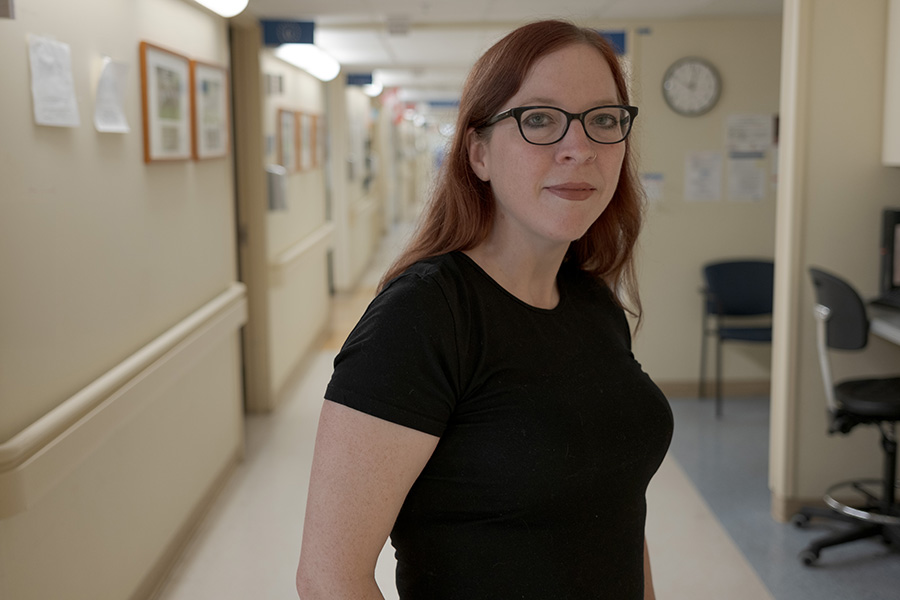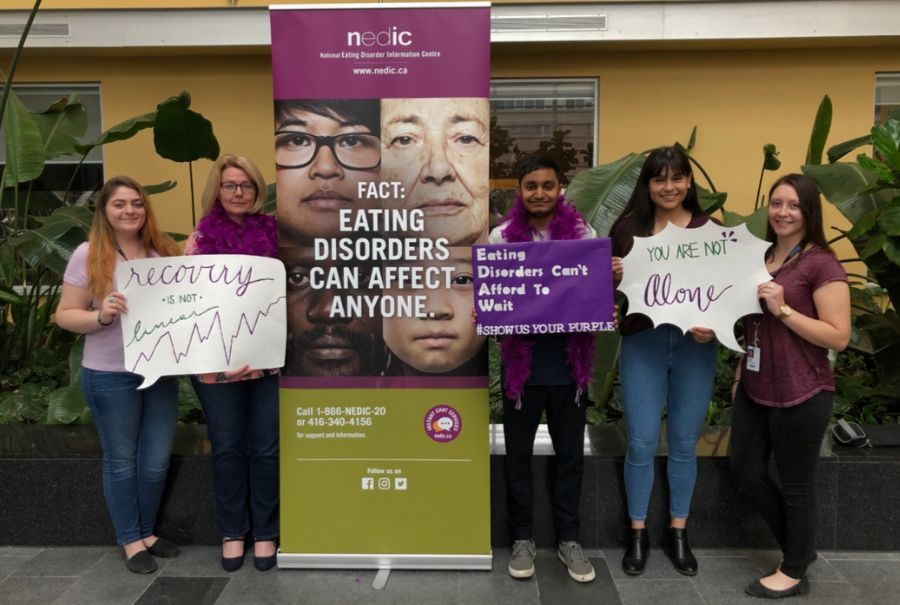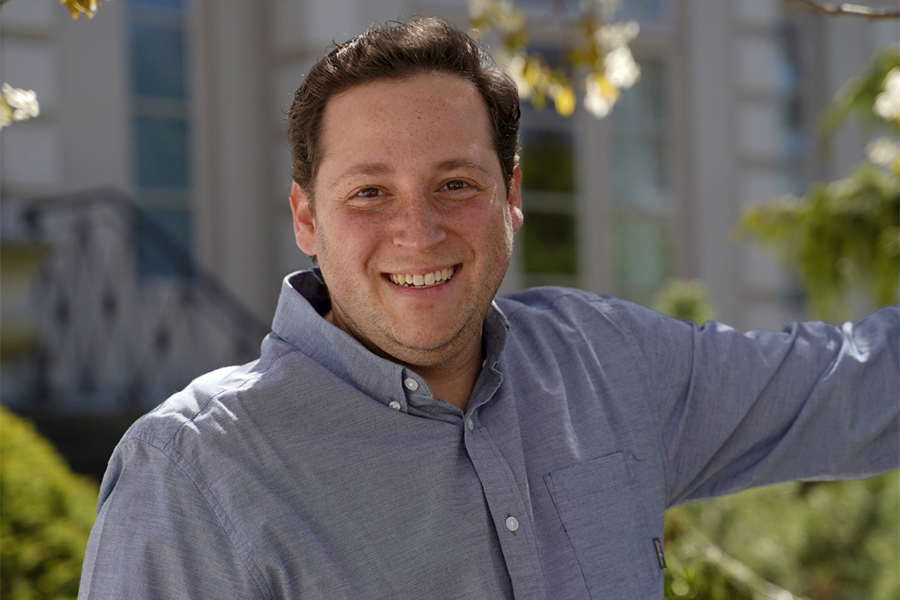
Francis Chang was born a “blue baby,” with the telltale bluish skin discoloration indicating a congenital heart defect.
He had surgery to improve blood circulation to his heart on the second day of his life, and again at age two. Francis has been regularly monitored for the past 45 years, half of those by UHN.
Last year, compromised functionality indicated the need for a third surgery.
At the same time, Francis was having breathing trouble. His cardiologist, Dr. Rafael Alonso, Director of the Toronto Adult Congenital Heart Disease (ACHD) Program at UHN’s Peter Munk Cardiac Centre, ran a number of tests and concluded Francis’ heart was not the source of the breathing problem.
That’s when Francis was introduced to Galadriel Barrett Laffan, a nurse practitioner with UHN’s Centre for Mental Health, who has been embedded into the Adult Congenital Cardiac Clinic as part of a pilot project.
Since May 2023, Galadriel has provided pre-appointment mental health screenings for nearly 500 cardiac patients, using questionnaires that measure quality of life, depression, anxiety and substance use. (Patients aren’t required to complete the questionnaires, but 75 per cent have done so since the project’s inception.)
‘There is an interrelationship between cardiac disease and mental health’
The collected data forms the basis of a measurement-based care approach, helping Galadriel identify patients with mental health needs and then tailor support according to a stepped care model. It might range from providing self-care resources for low complexity patients to specialized psychiatric support for high complexity patients.
Additional follow up questionnaires are sent to patients to monitor and measure health outcomes and inform future treatment plans.
Wednesday, January 24, is Bell Let’s Talk Day, an initiative aimed at raising awareness of mental health issues and highlighting initiatives such as this that move mental health care forward.
“We know there is an interrelationship between cardiac disease and mental health,” says Dr. Raed Hawa, Deputy Psychiatrist-in-Chief at the Centre for Mental Health. “Research shows that cardiovascular patients with depression and anxiety have higher mortality and morbidity rates and lengthier hospital stays.”
Individuals with congenital heart issues are particularly susceptible to mental health issues, says Dr. Alonso.
“Operated on as children, they often face limitations impacting their ability to work or provide for their family, contributing to a heightened risk of depression or anxiety,” he says.

With 15 years of experience as a nurse, including eight in mental health nursing as well as experience in an inpatient cardiology program, Galadriel felt like this new position was designed just for her.
Since she began, 17 per cent of patients who completed questionnaires have required mental health support. Galadriel directly provides the majority of this support – providing educational resources, brief counselling and medication management. (Patients with advanced needs are directed to Dr. Dilip Koshy, a psychiatrist with the Mental Health in Medicine Clinic.)
“A lot of my patients talk about not being able to access mental health supports, citing wait times and costs, but also a reluctance from providers to treat patients with congenital heart disease and worry about complications related to managing medications,” says Galadriel.
When she first met Francis, she ran through the questionnaires in person using a tablet. (The questionnaires will soon be added to Epic and in the future answered by patients remotely.)
It became evident Francis was experiencing heightened anxiety, and through discussion his upcoming surgery and work-related stressors were identified as the source of this anxiety.
Over a series of sessions, Galadriel provided Francis with tools to manage his anxiety, including breathing techniques and educational resources.
“When you live with a heart condition, you feel that every activity, panic attack, or stressor is a potential threat to my heart’s survival,” says Francis.
“Galadriel listened, outlined that these are normal thoughts and provided me with the ability to calm myself down. It really eased my mind about the surgery.”
‘It’s a relief as a provider to offer them something more’
Before this pilot project, Dr. Alonso directed patients to a website with mental health educational resources and referred those with severe psychiatric issues to the Centre for Mental Health.
“It’s hard to talk to a patient about a mental health problem if you are not able to offer direct support,” says Dr. Alonso. “It’s a relief as a provider to offer them something more.”
He cites Galadriel’s ability to develop a unique relationship with patients that allows her to hear things they might otherwise not share with their cardiologist.
“I think being able to refer patients to me and having somebody who does know how to help is appreciated,” Galadriel says. “I facilitate a more connected and supportive team.”
Dr. Hawa agrees.
“This collaboration within UHN, where mental health is integrated like this, is unique – the typically we provide psychiatric consultation to other programs or take referrals,” says Dr. Hawa. “Being embedded and part of the process will improve patient outcomes as well as enhance cardiac and psychiatric knowledge transfer.”
Pending a project evaluation in 2024, there is potential to expand the pilot across other clinics at the Peter Munk. (It currently supports only the Toronto ACHD Program’s Heart Function Clinic run by Dr. Alonso and Dr. Lucy Roche.)
A second research-focused phase of the project will launch in 2025, and feature a global partnership with King’s Health Partners (London, U.K.) who are running a similar project. Both sites will share their respective data sets and use artificial intelligence to identify associations between mental health disorders and cardiovascular disease. UHN’s Techna Institute will be involved in the project’s AI-element.

No one ever changed the world on their own but when the bright minds at UHN work together with donors we can redefine the world of health care together.


